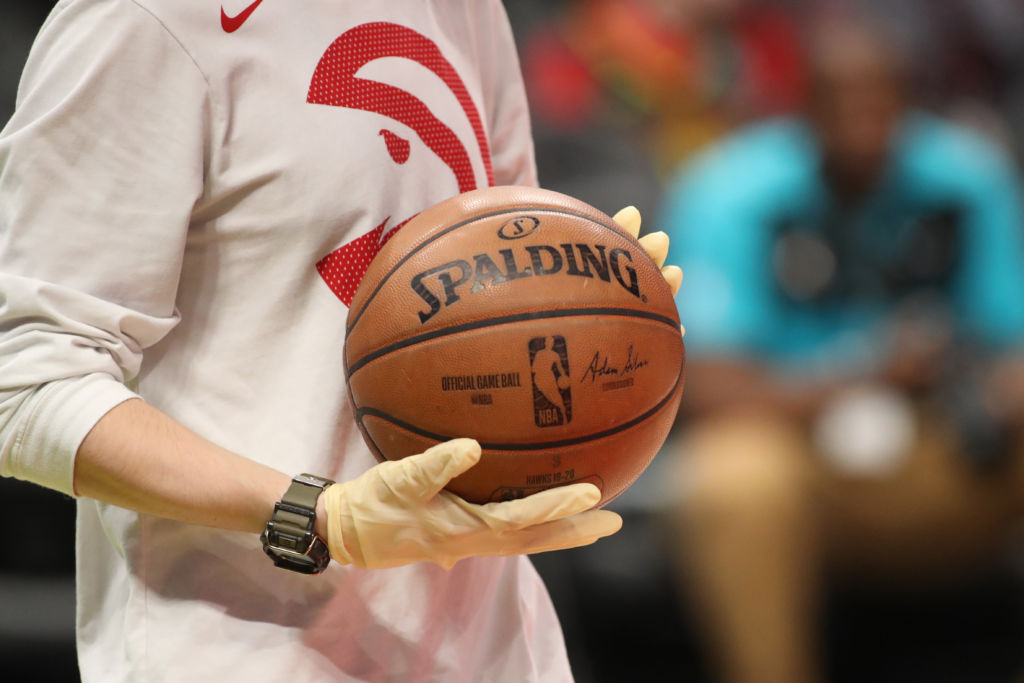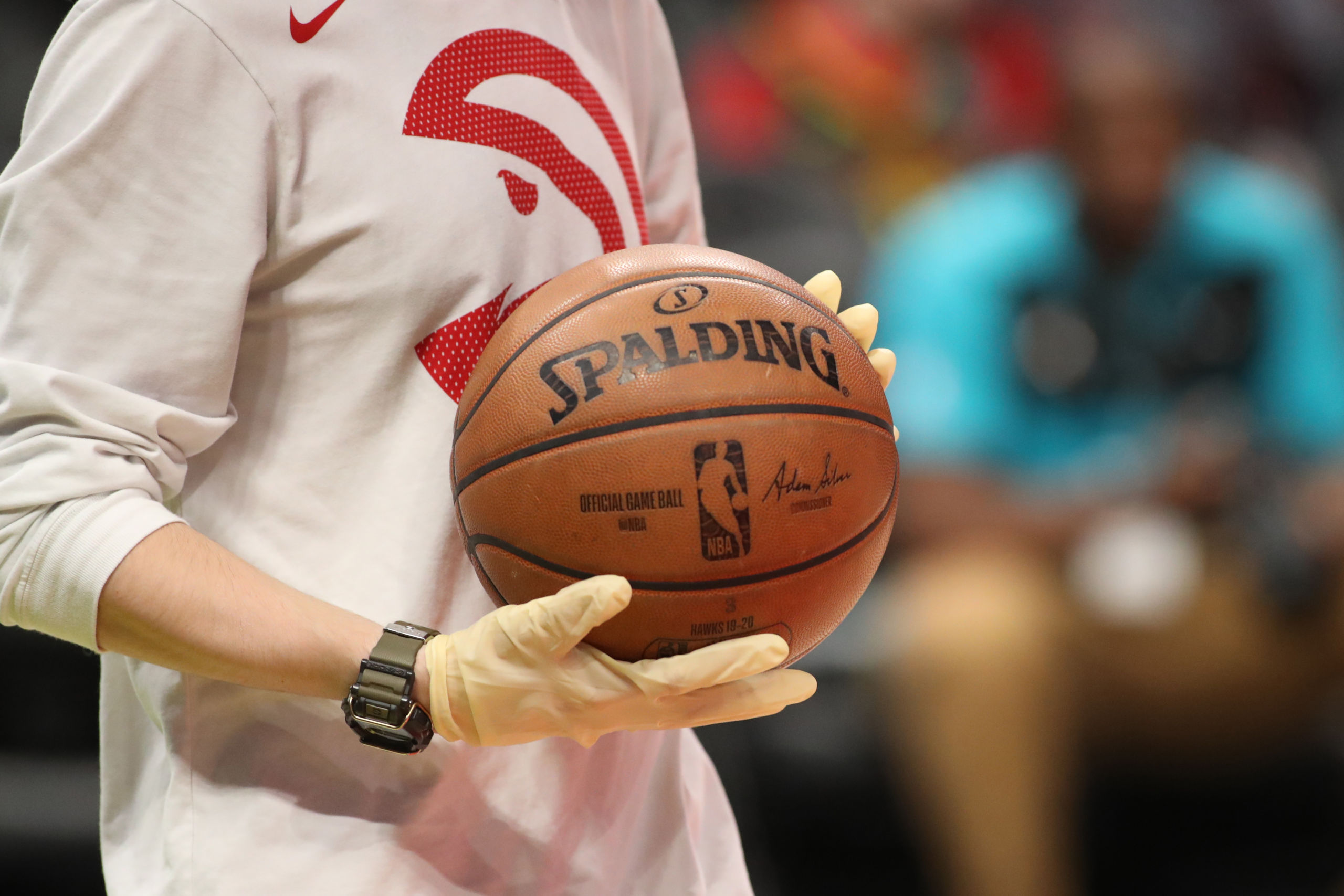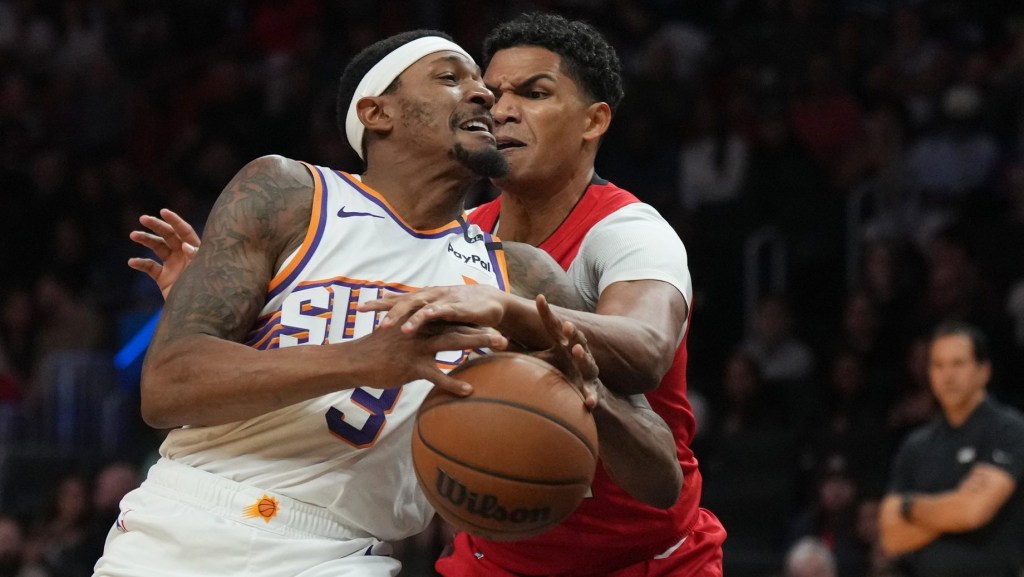
The Atlanta Hawks, through the Hawks Foundation and State Farm, are funding the preparation of 4,000 meals weekly to be delivered to the more than 1,000 frontline healthcare workers treating COVID-19 patients at Emory Healthcare through a four-week pilot that is part of the newly-formed Atlanta Healthcare Heroes inaugural program.
FOS REPORT: 54.5% of industry executives believe that it would be at least 60 days before leagues resume play.
The meals are provided in partnership with two local Atlanta restaurants, which are now able to re-employ “hundreds” of workers who were recently laid off or furloughed due to the financial effects of the crisis, according to Hawks CEO Steve Koonin.
Emory Healthcare, the Hawks’ healthcare partner, hospital locations will receive meals as part of the pilot program, which the organization is already looking to expand.
Healthcare Heroes marks just one of the ways Atlanta has emerged as a leader among sports teams in its coronavirus response.
Koonin – fresh off of a 600-person organization-wide Town Hall meeting where team doctors updated the staff, an idea he got from the Hornets – spoke with Front Office Sports about Atlanta’s leadership during the coronavirus crisis, supporting their community and managing a team from afar.
This interview has been condensed for clarity.
Front Office Sports: The Hawks have emerged as leaders, at least within the NBA, in terms of how you’re responding to this crisis. Can you speak to the overall leadership strategy there in responding to the needs of your community?
Steve Koonin: Well, there were three pieces to it. The first was to let our employees know, full and part-time, that they were going to be paid which creates both a sense of security and a spirit to give back and connect with the community where we all live.
The second piece was, we identified food insecurity early on as [something that was] going to be a real problem as schools closed. Kids get multiple meals a day in schools. [With] this disease being so contagious, we felt that good nutrition and having food would be one of the guiding principles of what we wanted to do. So we partnered with a company, Goodr, who is in that space. We had built basketball courts through several communities in Atlanta and we’ve turned those basketball courts into pop up grocery stores with fresh produce, fresh proteins, packaged goods. And it was probably the first time fresh produce has even been available in some of these food-desert neighborhoods.
READ MORE: Overtime Makes Cuts To Workforce Due to Coronavirus
So we’ve had 1,100 families shop, where they get two weeks of groceries from our program. Either we put it in your car if you drive or we hand it to you to carry if you walk or we’ll deliver it to the senior’s homes in the community. It’s been a very big success.
FOS: You touched on how the Hawks were one of the first teams to pledge to support their own employees financially – when did conversations start to extend that economic support elsewhere in the community and to healthcare specifically?
Koonin: That was the third thing we wanted to do: was really help the healthcare heroes when they got off work. We saw some stories where some nurses weren’t greeted warmly in grocery stores when they walked in and scrubs and they almost felt like strangers in their own town. We thought if we did that, we could keep restaurants going and the supply chain of restaurants, farmers, breadmakers, millers, etcetera going and supply meals to frontline medical staffers working on this virus. When you leave Emory and the pilot that we did for six hospitals – 800 meals a day, five days a week, 4,000 meals a week – you get a bag with a meal for two. A well-crafted meal with an appetizer and entree, sides, bread, dessert that we provide to them and no charge.
And we’ve been able to put hundreds of people who would have been unemployed back to work and we’re able to bring these meals to the hospital and bring a little daylight into a fairly dark situation in the hospitals. The belief and the response has just been breathtakingly wonderful.
FOS: The restaurants you mentioned, you’re working with a pair of local partners in this new program. How did the organization go about deciding the best partners to work with?
Koonin: Well, because we were going into a hospital environment that has high security and very complex restrictions right now, you just can’t send the delivery guy into the hospital. We let Emory pick who they were comfortable, had experience and relationships with.
FOS: You said this was the initial rollout, so to speak – have there been talks to expand the program?
Koonin: We’re hoping to be able to continue to add hospitals and to add restaurants and make this a movement. We’re not ready to announce anything, but we’re having a lot of success getting both foundations and companies coming in with financial contributions and multiple restaurant groups that will each work with a hospital. One of the things that we’ve learned is you repeat what’s working. So for example, Emory will stay with this group for however long the program is because they have it down for Emory. And another hospital group might work with another local restaurant entrepreneur or two. So that continuity for security purposes really, really is helpful.
FOS: This obviously isn’t a cheap endeavor and you mentioned some foundations wanting to help but it sounds like your focus has been on being a good community partner. How important is it to keep the Atlanta economy alive during this time for the Hawks?
Koonin: It’s critical to help small businesses. You know, we might be the only place that wears the name Atlanta across their chest when we go to work every day. We’re very proud to be a basketball team that wears its city name and it’s unbelievably important to support that [city].
Since we’ve been on the phone, I just got a text from a doctor wondering if they could borrow our x-ray machine to take out of the arena so they could do chest x-rays at a hospital so they have extra equipment. The needs and the opportunities to help are [as] deep as your imagination. And so we just believe that this is worth an investment. And our ownership group is wildly generous and they are funding it. It’s a significant investment.
FOS: You mentioned trying to build these programs out within your own city but with responses to coronavirus-related changes and developments, it seems like we’ve seen sort of a snowball effect throughout the league and the industry when a team decides to do something and others follow. Was that the hope here?
Koonin: Absolutely. And we’ve all been sharing. There is an email thread of about 22 sports team presidents including hockey and baseball and another one with eight of us who are on what’s called TAC, which is a team advisory committee. We were supposed to be meeting in New York two weeks ago and so we’re doing TAC virtually and we’re talking about all issues and sharing best practices and programs. Nothing would make us happier than to be a place that inspired others and we certainly have no problem taking great ideas from other teams.
FOS: Have there been things already that you’ve learned from others?
Koonin: I think part of it is the communication and things like town halls. We had our team doctors speak today for 35 minutes and did a 20-page slide presentation. That was very helpful. And normally when we have a meeting and I ask if there are any questions, I don’t get a whole lot. This was on Zoom and we literally had to cut the questions there were so many coming yet. Those are the kind of things – we saw that from Charlotte, who was doing that with a medical provider, and Philadelphia. And so there’s been a lot of ideas.
We shared our Healthcare Heroes and our popup grocery store with the Clippers and Steve Ballmer made a huge donation to help. So I definitely think that the best practices are constantly moving around the league. And there’s lots of league people talking, by specialty if you will. I know there’s a CRO chain going around, people talking as far as refunds and thinking about next season and thinking about this season. So it’s nice to be part of the NBA family and community and hopefully some of the things we see that are working in Atlanta will get adapted other places.
READ MORE: Emmanuel Sanders’ Fangage Platform Hits Stride in Coronavirus Climate
FOS: As the Hawks’ CEO, you obviously have a ton of people under your umbrella. How do you manage a team – from your front office staff to arena employees to players and athletes – during a crisis like this?
Koonin: You know, in some ways it’s easier because there are no distractions.
FOS: Interesting.
Koonin: I find that I probably am being more productive the last three weeks then normally so because we’ve built a process. Monday, Wednesday, Fridays are for groups to be meeting – all of sales meet, all of marketing, all of community, etc. And then on Tuesdays and Thursdays, we have the coronavirus task force, which I think is 46 people we’re up to now, and [they] literally go through every discipline, department by department, with important updates.
Our IT group has done a phenomenal job to put us in business with Microsoft teams, our note provider, so we’re all sharing and obviously we’ve been Zooming a lot. And by doing this, the communication is sharper than it would be when we’re divided between three floors in a business office and the arena and practice facility. We seem to be more locked in and I’m being really serious – I think character and focus are found in crisis and people are very, very, very focused and they want to be part of the solution.
FOS: I feel like a lot of people often when they’re remote or have a fragmented workforce, can let things slip through the cracks and things can get tougher, communication-wise. Do you think that’s a testament to your team or more a testament to the times?
Koonin: I think it’s both. I think that it starts at the top with our ownership group and by engaging and letting people know they have their back, that’s a powerful thing and it’s a motivating thing. And that way, people have one less thing in a very, very scary world to think about. I mean, we made the 53 second healthcare hero video shot by players on iPhone and edited by our guys. In our town hall, we just had six videos play.
So the ability to communicate, the ability to work at home, the ability to connect via the use of the technology today is just kind of astounding. I’m downstairs in my basement and you know, I’ve got my notes from every meeting. I’ve got my iPad, my phone and I’m able to be locked in and focused with very little and no distraction for hours, for absolute hours. I prefer to be in the social office environment. I prefer to be connecting with people and it’s great to celebrate and high five and shake hands, but we’re going to do what we have to do. And I think the adaptability and what we’re seeing now, it’s going to change the world forever.
To me the headline is: ‘Business Unusual.’ If you think we’re going to be able to go back and do what we did before, that’s going to be a recipe for failure. You’ve got to think differently. You’ve got to think the way the fan is thinking and how they’re going to engage and how they’re going to perceive and watch and consume sports after this. We are fans, but we’re trying to think with a critical eye and take some intelligent risks and do some things differently than we normally would do when we come back and be prepared for that.
FOS: Where do you see those kinds of long term ramifications of what’s happening right now?
Koonin: All over the place. I haven’t seen the final ratings, but Elton John hosted the special that was shot on iPhone that I think probably did better than respectable ratings. It froze and it wasn’t perfect and there were multiple angles, but the point is maybe the consumer doesn’t need the same kind of production that they’ve seen for 30 years to engage.
I still think you need great stories, but I also think that spaces versus seats might be very popular when people start going back into venues again, meaning let me stand and hang out and I’ll seek my own distance rather than necessarily be lined up in rows. So those are the kinds of things we have to think through and try and test and model because it’s not the same.
















